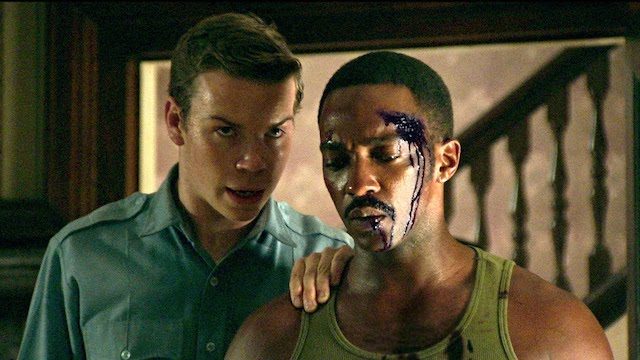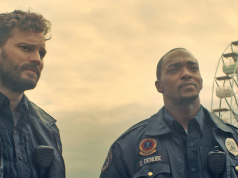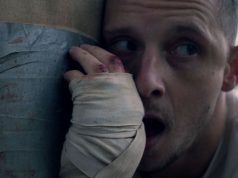
“Detroit” is about one of the more unpleasant things to have happened in a city where so many unpleasant things have happened that you can elicit a feeling of despair just by naming your movie after it. (“Wanna go see ‘Detroit’?” “No, that sounds depressing.”) Directed with well-placed outrage by Kathryn Bigelow from a screenplay by her “Hurt Locker” and “Zero Dark Thirty” scribe Mark Boal, the overlong film bristles with anger but is undermined by a meandering, repetitive story that doesn’t come together well enough to make the arduous experience worthwhile.
It’s set a half-century ago, in 1967, when the black neighborhoods of Detroit (and other American cities) felt oppressed by the heavy-handed tactics of the mostly white police force, and long-simmering racial tension came to a boil. (Hard to imagine anything like that happening today, right?) The result was a five-day riot that left more than 40 people dead. Onscreen titles summarize how the city came to be such a tinderbox, but the movie isn’t about the history of Detroit, or even the 1967 riot. It’s about a specific ugly incident that happened during the riot, involving racist cops and black civilians at the Algiers Motel. Since the film presumes unfamiliarity with it (a safe bet), and since the incident doesn’t occur until the second half of the movie, I won’t spoil it.
Before we get there, the film introduces us to numerous unrelated people and lets us follow them around without a sense of where it’s all headed. The Detroit cops include blatantly racist Krauss (Will Poulter, with sinister eyebrows) and his complicit cohorts Demens (Jack Reynor) and Flynn (Ben O’Toole). Early on, Krauss is reprimanded for over-aggressive policing (to put it mildly). “We’re not supposed to shoot the looters,” a colleague tells him. “Then how the hell are we supposed to stop them?” asks Krauss, putting his finger on the problem without realizing it.
Among the civilians, there’s Larry (Algee Smith), who’s part of a quintet of black singers on the verge of being discovered by Motown, and Fred (Jacob Latimore), the younger brother of one of the other group members. There’s also Melvin Dismukes (John Boyega), straddling the line between law enforcement and civilian as an armed security guard who’s disrespected by cops for not being white and by black men for being a sellout.
Riot scenes are interspersed with real news footage, giving the docudrama an air of authenticity while underscoring Bigelow’s skill at making the recreations match the originals. All of this is fitfully engaging, but the narrative feels like it’s wandering. Bigelow’s tactics change when we finally get to the Algiers Motel, a seedy flophouse where Krauss & co., looking for a sniper, subject every innocent guest — mostly black men (including those already named plus Anthony Mackie, Nathan Davis Jr., and Jason Mitchell), plus two white girls (Hannah Murray and Kaitlyn Dever) — to manhandling, abuse, and worse. Now the real news footage goes away and we’re trapped for what feels like an eternity in this frustrating nightmare scenario. At last it becomes clear that this was what the movie was all about, and we’re left to wonder why all that exposition wasn’t abbreviated.
The Algiers sequence occupies a significant chunk of the film. It’s tense and often terrifying, the Detroit cops joined by National Guard and State Police while chaos reigns outside, but those returns diminish the longer it drags on. After a while the movie becomes more of a grueling punishment than an artistic experience, an “eat this, it’s good for you” film that might not even be that good for you. The commentary on police brutality, while duly enraging, is reduced to platitudes and on-the-nose declarations (“What kind of animal would do this?” says a good cop upon finding a victim). But even if it were eloquent and nuanced, at what point does this display of misery and injustice stop being nutritional — something to spur us to action — and start discouraging us? We know there is mud. How much must we wallow in it?
The performances are good, even with Poulter’s racist cop being written so one-dimensionally. Algee Smith’s young crooner is an emotional anchor, and the way the experience affects him is an interesting thread that should have gotten more attention. But as noble as Bigelow and Boal’s intentions must have been, the film generates more heat than light, stirring up anger without channeling it into something productive.
C+ (2 hrs., 23 min.; )





